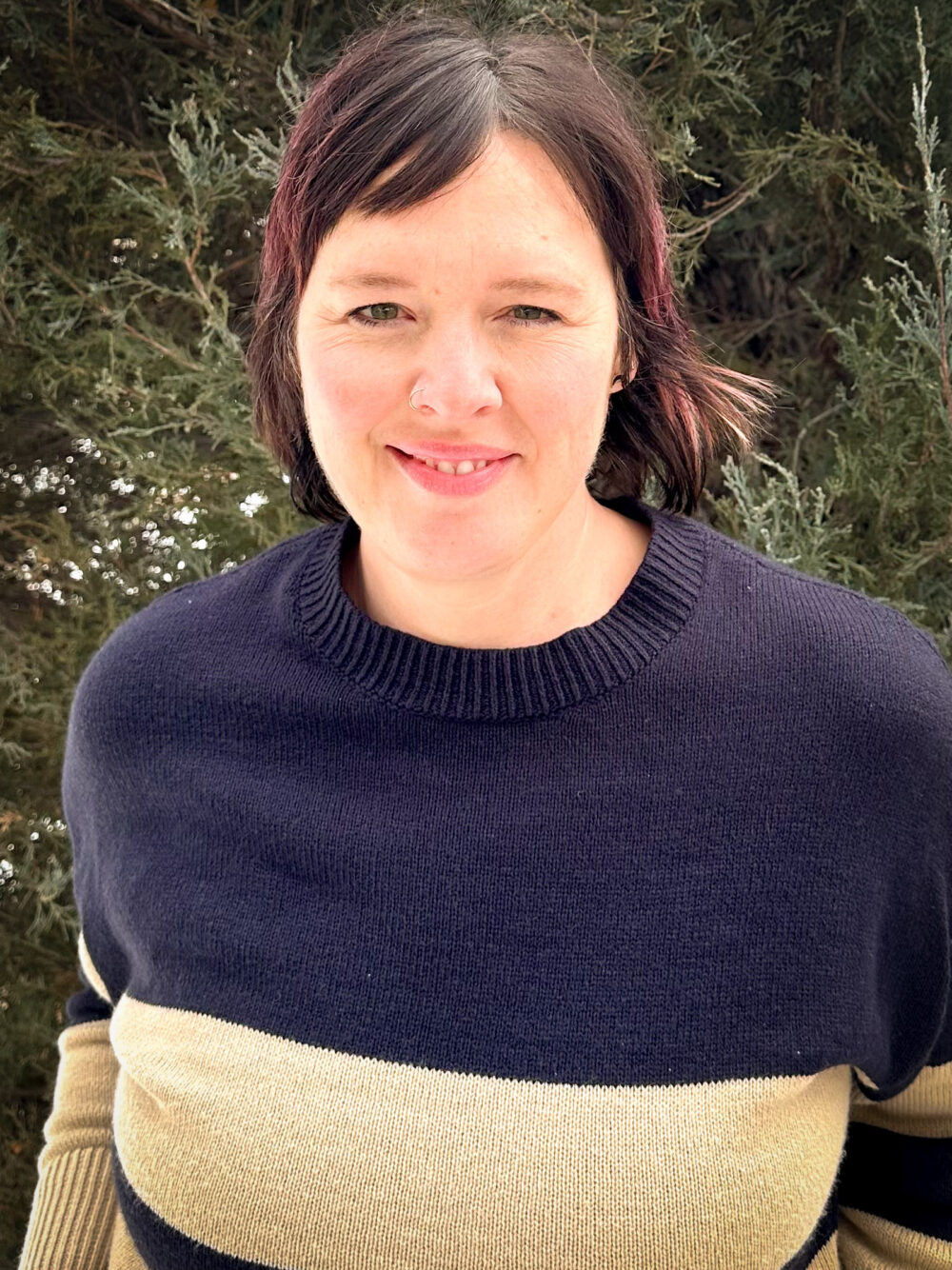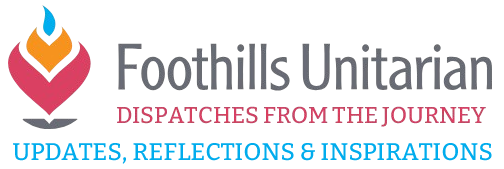Dear community, both within and beyond Foothills,
Since the horrific attack on October 7th, we have shared UUA statements, including from our President, the Rev. Sofia Betancourt, in response to the Israel and Hamas conflict, and the suffering and loss of life in both Israel and Palestine, as well as their follow up statement calling for a ceasefire. However, we have not made any statements directly from Foothills ministers or, more generally, from our community.
At first, this was from a place of shock and disorientation. The violence has been overwhelming, and the way forward is so incredibly unclear. It was also in recognition of how complicated the situation in the area is, how much history and trauma there is, and how many extremely strong feelings there are from all perspectives. To be honest, we were unsure what we could or should say that would be helpful.
Over the last couple of weeks, however, we have come to realize we need to apologize for this lack of an explicit statement from our community. We should not have remained silent about key commitments that we hold or failed to express grief and care for the human losses and fear that people in our community, especially Jews, Muslims, and others of Palestinian descent, are feeling. Our silence contributed to a sense of isolation and insecurity felt by these communities, our neighbors, which in these times only worsens the grief and trauma resulting from this conflict. We are are truly sorry.
We hope that this communication, in some small way, tends to that sense of isolation and fear and communicates our commitment to care and stand with these communities in their grief and in condemning the violence and loss of life. While much of the larger public conversation focuses on a polarized debate that only deepens the conflict and the pain, our faith calls us to focus on compassion and our affirmation that every human being has inherent dignity and worth and that we are all interconnected and interdependent. We are all held and called by a unifying and transforming love, which some know as God.
From this affirmation, we resolutely decry all acts and intentions of anti-semitism, explicit and implicit, and proclaim our love and care for our Jewish siblings, especially those who are our neighbors here in Northern Colorado, including those who are members of our congregation, as well as those who are part of Unitarian Universalist communities everywhere.
And, for this same reason, we also resolutely denounce all acts and intentions of Islamophobia, explicit and implicit, as well as racist and xenophobic acts, and proclaim our love and care for our Muslim and Palestinian siblings, especially those who are our neighbors here in Northern Colorado, including those who are a part of Unitarian Universalist communities everywhere.
Our hearts are breaking for the violence and loss of life occurring in Israel and Palestine. And, our hearts are breaking for the grief our Muslim, Palestinian, and Jewish neighbors and friends feel as they grieve family, friends, and loved ones who have died, who are injured, and who are facing so much loss. We are holding our Muslim, Palestinian, and Jewish neighbors and friends in love and care as they carry the worry for their community both in harm’s way and also for their community locally, as they face bigotry and hatred simply for being who they are.
Additionally, we refuse the idea that we must find any particular group more worthy of compassion over another, and we resist any attempts to reduce the extreme complexity of this situation to an easily tweetable sound bite. We assume that people hold complex and even contradictory feelings and perspectives and that we all have partial and likely flawed understandings of what is occurring in this situation.
We also understand that the Israeli people are not the Israeli government and that Jewish people, both in and out of Israel, hold all possible perspectives, just as we understand that Palestinians are not Hamas and that there is as much diversity within the Muslim community as there is outside of it. We believe that most people do not want other people to suffer and that they share a deep desire for peace, for safety, and for a life where all people can experience safety, peace, and justice. We believe that all people deserve to be free.
We are committed to showing up on behalf of these values, even if it means sometimes making mistakes and the hard and humbling work of learning in public. We are committed to following the lead of the communities most impacted by this conflict. Our hearts are breaking, and as Parker Palmer says, we are committed to allowing them to break open as we renew our commitment to the way and the call of love. If you are called to take action in response to the loss of life, please find some suggestions of places to start below.
In faith,
Rev. Gretchen Haley
Rev. Sean Neil-Barron
Rev. Elaine Aron-Tenbrink
Ministers, Foothills Unitarian Church
Calls to Action:
If you are called to take action in response to the violence and loss of life in Israel and Palestine, start by sending a note of compassion and care to our neighbors in local Jewish and Muslim communities and reach out to Jewish and Muslim friends. Follow the usual advice when someone you care about is grieving: don’t worry about finding the perfect words, as any words of care will be better than silence.
Additionally, if you are new to this situation, learn more about the history of the conflict by reading a variety of news sources, including this article from the BBC or this from Al Jazeera. Pay attention to the influence of colonialism and imperialism in this history, and recognize the historical oppression of both Jewish (in and out of Israel) and Palestinian (Muslim and non-Muslim) people. Listen to the stories of those who are closer to this than you are, and honor the feelings and acknowledge the trauma, which is generational and embodied.
If you are looking for organizations to support, check out the grassroots organizations that have been working for peace for a long time, such as Standing Together, Combatants for Peace, Parents Circle Families Forum, or Women Wage Peace.

